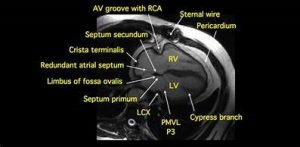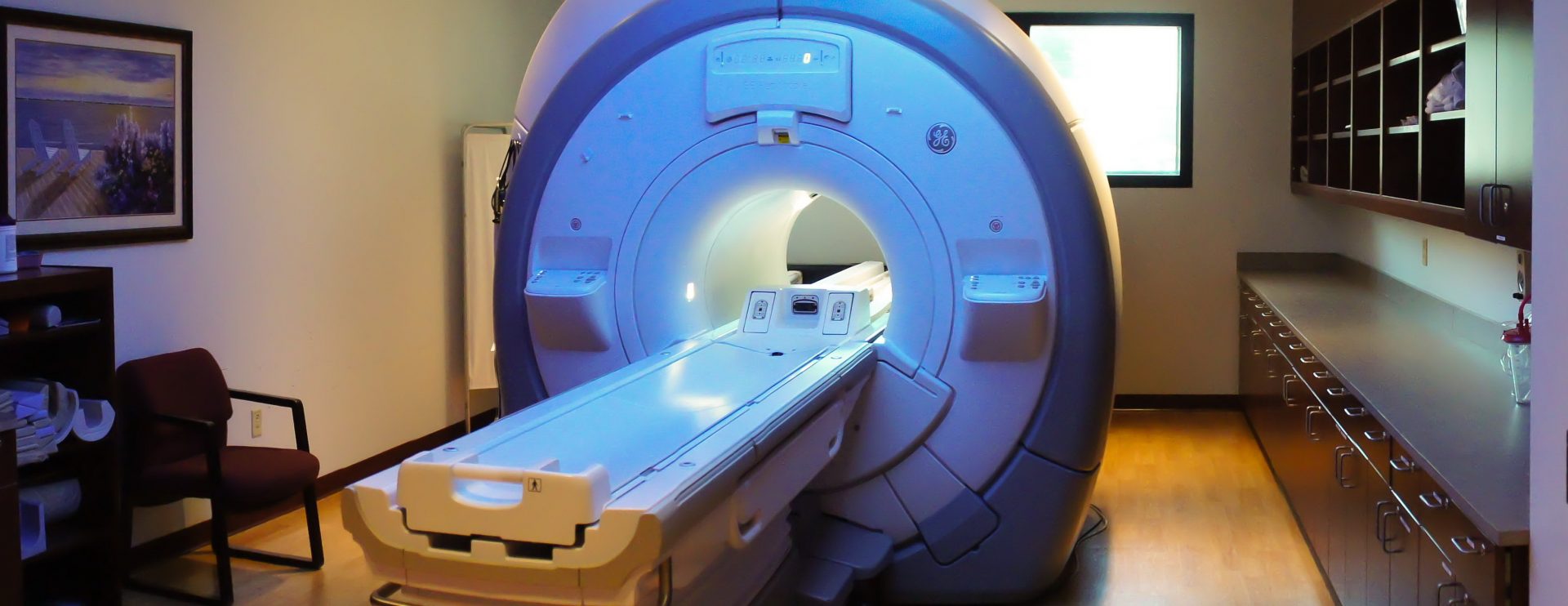Cardiac MRI
Cardiac Magnetic Resonance Imaging is used to detect or monitor cardiac disease and to evaluate the heart’s anatomy and function in patients with both heart disease present at birth and heart diseases that develop after birth. Cardiac MRI does not use ionizing radiation to produce images, and it may provide the best images of the heart for certain conditions:
- Evaluating the anatomy and function of the heart chambers, heart valves, size of and blood flow through major vessels, and the surrounding structures such as the pericardium (the sac that surrounds the heart)
- Diagnosing a variety of cardiovascular (heart and/or blood vessel) disorders such as tumors, infections, and inflammatory conditions
- Evaluating the effects of coronary artery disease such as limited blood flow to the heart muscle and scarring within the heart muscle after a heart attack
- Planning a patient’s treatment for cardiovascular disorders
- Monitoring the progression of certain disorders over time
- Evaluating the effects of surgical changes, especially in patients with congenital heart disease
- Evaluating the anatomy of the heart and blood vessels in children and adults with congenital heart disease (heart disease present at birth).

The Benefits of Cardiac MRI are:
- MRI is a noninvasive imaging technique that does not involve exposure to ionizing radiation
- MR images of the heart are better than other imaging methods for certain conditions. This advantage makes MRI an invaluable tool in early diagnosis and evaluation of certain cardiac abnormalities, especially those involving the heart muscle
- MRI has proven valuable in diagnosing a broad range of conditions, including cardiovascular anatomical anomalies (e.g., congenital heart defects), functional abnormalities (e.g., valve failure), tumors, and conditions related to coronary artery disease and cardiomyopathy (disease affecting the heart muscle).
- MRI enables the discovery of abnormalities that might be obscured by bone with other imaging methods.
The contrast material used in MRI exams is less likely to produce an allergic reaction than the iodine-based contrast materials used for conventional x-rays and CT scanning. - Cardiac MRI allows for evaluation of the structures and function of the heart and major vessels without the risks of exposure to ionizing radiation which may be associated with more invasive procedures or some other non-invasive tests.


